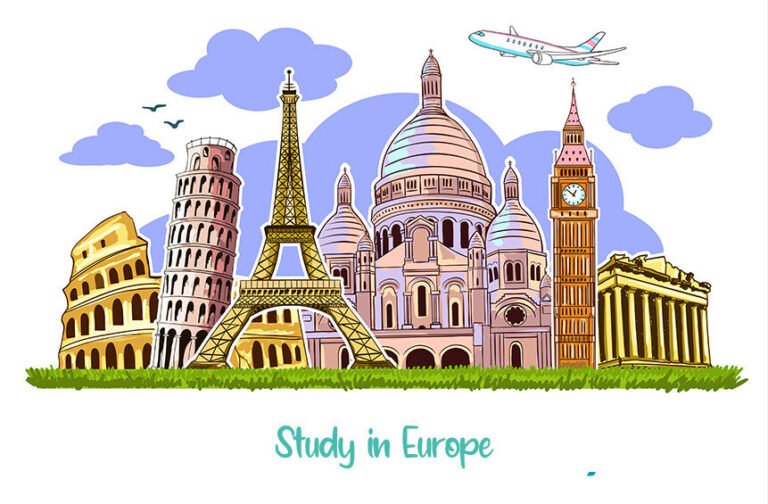How to Build a Career Abroad After Completing Studies
How to Build a Career Abroad After Completing Studies
Embarking on an international career journey after completing your studies is an exciting prospect for many students, especially Indian students seeking global exposure. The path to building a successful career abroad after studies requires strategic planning, understanding of international job markets, and leveraging the right resources. This comprehensive guide will walk you through every step of the process, from preparation to securing your dream job overseas.
With globalization creating more international career opportunities than ever before, now is the perfect time to explore your options. Whether you're interested in technology, healthcare, finance, or any other field, this guide will provide actionable insights to help you navigate the complexities of working abroad.
Get Free CounsellingTable of Contents
- Understanding Post-Study Work Options
- Top Destinations for International Careers
- Essential Skills for Global Job Markets
- Navigating Visa and Immigration Processes
- Building an International Network
- Job Search Strategies for Overseas Positions
- Cultural Adaptation and Professional Integration
- Long-term Career Planning Abroad
- Financial Considerations for Working Overseas
- Future Trends in International Employment
- Frequently Asked Questions
Understanding Post-Study Work Options
When planning your career abroad after studies, it's crucial to understand the various pathways available. Many countries offer specific post-study work visas that allow international students to remain and work after completing their education. These programs are designed to retain talented graduates and contribute to the local economy.
Countries like Canada, Australia, the UK, and Germany have established post-study work routes that have proven successful for thousands of international students. Understanding the specific requirements, duration, and transition options of these programs is the first step toward building your international career.
The Canadian Post-Graduation Work Permit program is one of the most popular options, allowing graduates to work for up to three years. Similarly, Australia's Temporary Graduate Visa (subclass 485) offers opportunities for work abroad for Indian students and other international graduates.
It's important to research each country's specific policies as they can change. For instance, the UK's Graduate Route allows international students to stay for two years after studies (three years for PhD graduates) to work or look for work. Staying updated on these policies through official government websites is essential for planning your post-study work 2026 strategy.
Get Free CounsellingTop Destinations for International Careers
Choosing the right destination is a critical decision when planning your career abroad after studies. Different countries offer varying opportunities, immigration pathways, and quality of life. Let's explore some of the most popular destinations for international graduates seeking global employment opportunities.
Canada: Known for its welcoming immigration policies, Canada remains a top choice for international students. The Express Entry system, Provincial Nominee Programs, and various work permits make it relatively straightforward to transition from student to permanent resident. Major cities like Toronto, Vancouver, and Montreal offer diverse job opportunities across sectors.
United States: While the H-1B visa process can be competitive, the US continues to attract talent with its dynamic job market and high salaries, particularly in technology, finance, and research sectors. The Optional Practical Training (OPT) program allows graduates to work for up to three years in their field of study.
Germany: With its strong economy and demand for skilled professionals, Germany has become increasingly popular among international graduates. The country offers an 18-month post-study residence permit to search for employment, and once secured, pathways to permanent residency are relatively straightforward.
Australia: Australia's points-based immigration system favors young, educated professionals with skills in demand. The Temporary Graduate Visa provides opportunities to gain Australian work experience, which can lead to permanent residency through skilled migration programs.
Other promising destinations include Singapore, the Netherlands, Sweden, and New Zealand, each offering unique advantages for international graduates. When selecting a destination, consider factors such as job market conditions, immigration policies, cultural fit, and long-term settlement prospects.
Get Free CounsellingEssential Skills for Global Job Markets
Succeeding in international job markets requires more than just academic qualifications. Employers worldwide value a combination of technical expertise and soft skills that enable professionals to thrive in diverse work environments. Developing these skills during your studies can significantly enhance your employability abroad.
Cross-cultural communication: The ability to effectively communicate across cultural boundaries is crucial in global workplaces. This includes understanding different communication styles, business etiquette, and non-verbal cues. Resources like the Hofstede Insights can help you understand cultural dimensions of different countries.
Language proficiency: While English remains the lingua franca of international business, proficiency in additional languages can be a significant advantage. For example, learning German can enhance opportunities in Germany, Austria, and Switzerland, while French can open doors in France, Canada, and parts of Africa.
Adaptability and resilience: Working abroad often involves navigating unfamiliar systems, cultures, and challenges. Demonstrating adaptability and resilience during the job search and in workplace settings is highly valued by international employers.
Digital literacy: In today's globalized economy, proficiency with digital tools and platforms is essential. This includes not only technical skills specific to your field but also competence with collaboration tools, project management software, and digital communication platforms.
Additionally, developing industry-specific technical skills, problem-solving abilities, and emotional intelligence will strengthen your candidacy for international career opportunities. Consider pursuing certifications, internships, or projects that demonstrate these competencies to potential employers.
Get Free CounsellingNavigating Visa and Immigration Processes
Understanding and successfully navigating visa and immigration processes is perhaps the most challenging aspect of building a career abroad after studies. Each country has its own complex system of work permits, residency requirements, and pathways to permanent settlement.
Most countries require international graduates to transition from a student visa to a work permit or post-study work visa. The specific requirements, processing times, and costs vary significantly. It's essential to begin this process well before your student visa expires to avoid gaps in legal status.
For those considering the United States, the H-1B visa lottery system presents significant challenges. Alternatives such as L-1 intracompany transfer visas, O-1 extraordinary ability visas, or employment with cap-exempt organizations may provide additional pathways. The USCIS website offers official information on these options.
Canada's Express Entry system uses a Comprehensive Ranking System (CRS) that awards points for factors such as age, education, work experience, and language proficiency. Graduates of Canadian institutions receive additional points, making this an attractive pathway for those who have studied in Canada.
European countries often have specific schemes for retaining international talent. Germany's Blue Card program, for instance, offers streamlined work and residence permits for highly skilled professionals meeting certain salary and qualification thresholds.
Working with immigration consultants or lawyers who specialize in your target country can be invaluable. Additionally, many universities have international student advisors who can provide guidance on post-study work options. Proper documentation, meeting financial requirements, and understanding processing timelines are critical to successful visa applications.
Get Free CounsellingBuilding an International Network
Networking is a powerful tool for unlocking international career opportunities. Building professional relationships across borders can provide insights into job markets, referral opportunities, and cultural guidance that significantly enhance your chances of success abroad.
Start building your international network during your studies by connecting with professors, alumni, and industry professionals. Attend career fairs, industry conferences, and networking events both on campus and in the broader community. Many universities have alumni networks that span the globe and can be invaluable resources.
Digital platforms have revolutionized international networking. LinkedIn is particularly valuable for connecting with professionals in your target country and industry. Join industry-specific groups, participate in discussions, and strategically reach out to professionals for informational interviews.
Professional associations related to your field often have international chapters or connections. Membership can provide access to job boards, networking events, and industry insights. For example, the IEEE offers global connections for technology professionals.
When networking internationally, be mindful of cultural differences in communication styles and professional etiquette. Research appropriate approaches for your target country, and always be respectful of people's time and positions.
Remember that effective networking is about building genuine relationships, not just collecting contacts. Offer value to your connections, share relevant information, and maintain relationships over time. A strong international network can provide support throughout your career journey abroad.
Get Free CounsellingJob Search Strategies for Overseas Positions
Finding employment overseas requires a targeted approach that accounts for differences in job markets, application processes, and employer expectations. A strategic job search is essential for securing overseas job options that align with your career goals.
Begin by researching companies in your target country that hire international talent. Many multinational corporations have established processes for recruiting and relocating international employees. Additionally, identify growing industries and sectors with skill shortages in your target destination.
Tailor your application materials for each country's standards. Resume formats, cover letter expectations, and even the use of photographs can vary significantly. For example, while CVs in the UK and Australia are typically concise, German employers often expect detailed Lebensläufe with personal information.
Leverage international job portals specific to your target country. Websites like Indeed, Glassdoor, and country-specific platforms can provide access to a wide range of opportunities. Many countries also have government job portals that list positions eligible for work visa sponsorship.
Consider working with recruitment agencies that specialize in placing international candidates. These agencies often have relationships with employers who are open to sponsoring work visas and can provide valuable guidance throughout the application process.
When applying from overseas, be prepared for virtual interviews across time zones. Test your technology in advance, ensure a professional background, and practice answering common interview questions. Research the company thoroughly and be prepared to discuss how your international background adds value to their organization.
Persistence is key in the international job search. It may take longer to secure a position abroad, and you may face rejections due to visa sponsorship requirements. Stay focused on your goal and continue refining your approach based on feedback and market insights.
Get Free CounsellingCultural Adaptation and Professional Integration
Successfully building a career abroad after studies involves more than just securing employment; it requires effective cultural adaptation and professional integration. Navigating new workplace cultures, social norms, and communication styles is essential for long-term success and satisfaction.
Before relocating, invest time in learning about your destination country's culture, values, and social customs. Understanding concepts like direct versus indirect communication, hierarchical versus egalitarian workplace structures, and attitudes toward time and deadlines can prevent misunderstandings.
Workplace dynamics vary significantly across cultures. In some countries, such as the Netherlands and Scandinavian nations, workplaces tend to be relatively flat with informal communication. In contrast, countries like Japan and South Korea often maintain more formal hierarchical structures.
Developing cultural intelligence – the ability to relate and work effectively across cultures – is a valuable skill. This involves not just knowledge about different cultures, but also the ability to adapt your behavior appropriately. Resources like the Commisceo Global country guides can provide valuable insights.
Building relationships with local colleagues both inside and outside the workplace can accelerate your cultural adaptation. Participate in social activities, accept invitations, and show genuine interest in learning about local customs and traditions.
Be patient with yourself during the adaptation process. Cultural adjustment typically follows a curve with initial excitement, followed by potential frustration or homesickness, and eventual adaptation. Recognizing this pattern can help you navigate the emotional challenges of living and working abroad.
Maintaining connections with your home culture while embracing your new environment creates a balanced approach to international living. Many countries have expatriate communities that can provide support while you're adjusting to your new home.
Get Free CounsellingLong-term Career Planning Abroad
Building a sustainable international career requires thoughtful long-term planning beyond your initial position. Considering progression pathways, further education opportunities, and eventual settlement options will help you make informed decisions about your career abroad after studies.
Evaluate the long-term prospects in your chosen destination. Some countries offer straightforward pathways from temporary work visas to permanent residency and eventually citizenship. Understanding these pathways early allows you to make strategic decisions about job changes, additional qualifications, and other factors that might affect your eligibility.
Consider how international experience fits into your overall career trajectory. Will it lead to opportunities for advancement in your home country? Does it position you for global roles within multinational organizations? Thinking strategically about how international experience enhances your career capital is important.
Further education can be a valuable component of long-term career planning abroad. Pursuing additional certifications, professional qualifications, or advanced degrees in your host country can enhance your employability and may provide additional immigration benefits.
Build a diverse professional portfolio that includes international experience, cross-cultural competencies, and global networks. This portfolio will be valuable whether you choose to remain abroad long-term, return to your home country, or pursue opportunities in third countries.
Financial planning is an essential aspect of long-term career planning abroad. Consider factors such as retirement savings, investment opportunities, tax implications in multiple countries, and long-term financial goals. Consulting with financial advisors who understand international situations can be beneficial.
Regularly reassess your career goals and satisfaction with your international experience. As personal and professional priorities evolve, your ideal career path may change. Remaining flexible and open to new opportunities while maintaining a clear long-term vision will serve you well throughout your international career journey.
Get Free CounsellingFinancial Considerations for Working Overseas
Managing finances effectively is crucial when building a career abroad after studies. From understanding compensation packages to navigating international banking and tax obligations, financial preparedness contributes significantly to your success and peace of mind overseas.
Research typical salary ranges for your profession in your target country. Websites like Payscale and SalaryExpert provide valuable compensation data. Remember to consider cost of living differences – a higher nominal salary may not translate to better purchasing power in expensive cities.
Understand the components of compensation packages in your target country. Benefits such as health insurance, retirement contributions, vacation time, and bonuses vary significantly across countries and employers. In some European countries, for example, employers contribute substantially to social security systems that provide comprehensive benefits.
Set up international banking arrangements that minimize fees for currency conversion and international transfers. Many digital banking solutions now offer competitive options for expatriates. Consider maintaining accounts in both your home and host countries for flexibility.
Tax obligations can become complex when working internationally. Many countries have tax treaties to prevent double taxation, but understanding your obligations in both your host country and home country is essential. Consulting with a tax professional experienced in international situations can help you optimize your tax position and remain compliant.
Budget for relocation costs, which can be substantial. These may include visa fees, flights, temporary accommodation, security deposits for housing, and setting up your new home. Having sufficient savings to cover these initial expenses reduces stress during the transition period.
Consider how working abroad affects long-term financial goals such as retirement savings, investments, and major purchases. Different countries have varying approaches to retirement planning, and you may need to make special arrangements to continue contributing to retirement accounts in your home country.
Building an emergency fund is particularly important when working abroad, as unexpected job loss or personal emergencies can have more serious consequences when you're far from home support networks. Aim to save three to six months' worth of living expenses in an accessible account.
Get Free CounsellingFuture Trends in International Employment
The landscape of international career opportunities is constantly evolving. Understanding emerging trends can help you position yourself for success in the global job market of the future, including opportunities for post-study work 2026 and beyond.
Remote work is transforming international employment opportunities. Many companies now offer remote positions that allow professionals to work from anywhere, potentially eliminating the need for physical relocation. This trend may create new pathways for work abroad for Indian students and other international graduates without traditional visa sponsorship.
Digital nomad visas are emerging in many countries, offering legal frameworks for remote workers to live and work temporarily. Countries like Estonia, Portugal, and Barbados have introduced specific visas for location-independent professionals, creating new possibilities for international experience.
Global skill shortages in specific sectors are likely to continue driving international recruitment. Fields such as technology, healthcare, engineering, and renewable energy are experiencing growing demand for skilled professionals worldwide. Positioning yourself in these high-demand fields enhances your international employability.
Regional mobility agreements may create new opportunities for international work. For example, the European Union's freedom of movement principles allow citizens of member states to live and work throughout the EU. Similar agreements in other regions could expand international career options in the future.
Changes in immigration policies will continue to shape international career pathways. Countries regularly adjust their immigration systems in response to economic needs, political considerations, and global events. Staying informed about these changes through official sources like government immigration websites is essential.
The growing importance of sustainability and social responsibility is influencing international career opportunities. Companies worldwide are seeking professionals with expertise in environmental sustainability, corporate social responsibility, and ethical business practices, creating new international career paths.
By staying informed about these trends and developing adaptable skills, you can navigate the evolving landscape of international employment and build a successful career that spans borders and cultures.
Get Free CounsellingFrequently Asked Questions
What is the best country for building a career abroad after studies?
The "best" country depends on your field, personal preferences, and long-term goals. Currently, Canada, Germany, Australia, and the Netherlands are popular choices due to their favorable immigration policies and strong job markets. Consider factors like industry opportunities, quality of life, and pathways to permanent residency when making your decision.
How long does it typically take to find a job abroad after graduation?
The job search timeline varies significantly based on your field, target country, and individual circumstances. On average, it can take 3-6 months to secure employment abroad, though this may be longer for competitive fields or countries with complex visa processes. Starting your job search early, ideally before graduation, can improve your chances.
What are the most in-demand fields for international careers?
Technology, healthcare, engineering, finance, and data science currently offer strong international opportunities. Specific roles like software developers, nurses, renewable energy engineers, and data analysts are in high demand globally. Research industry-specific demands in your target country for the most accurate information.
Do I need to speak the local language to work abroad?
While not always mandatory, knowing the local language significantly enhances your employment prospects and cultural integration. In countries like Germany, France, or Japan, local language proficiency is often essential. In international business hubs like Singapore or the Netherlands, English may suffice for many positions, but learning the local language demonstrates commitment and facilitates deeper integration.
How can Vibedu help me build a career abroad after my studies?
Vibedu offers comprehensive guidance on study abroad options, post-study work pathways, and career planning. Our services include university selection assistance, visa guidance, pre-departure orientation, and career counseling. We help you navigate the entire process from education to employment abroad, increasing your chances of success in building an international career.
What are the biggest challenges when working abroad?
Common challenges include cultural adjustment, navigating immigration systems, building new professional networks, and managing finances across currencies. Homesickness and understanding workplace norms can also present difficulties. Preparation, patience, and seeking support from expatriate communities can help overcome these challenges.
Conclusion
Building a successful career abroad after studies is an achievable goal with proper planning, persistence, and the right guidance. By understanding post-study work options, developing relevant skills, navigating immigration processes, and building international networks, you can position yourself for global career success.
The journey requires adaptability and resilience, but the rewards – professional growth, cultural enrichment, and personal development – make it worthwhile. As global connectivity increases, international career opportunities continue to expand, offering exciting possibilities for ambitious graduates.
Remember that each person's path is unique, and what works for one individual may not work for another. Stay informed about changing policies, continuously develop your skills, and remain open to unexpected opportunities. With dedication and strategic approach, you can turn your dream of an international career into reality.
If you're ready to begin your journey toward building a career abroad, Vibedu is here to support you every step of the way. Our expert counselors can provide personalized guidance based on your academic background, career aspirations, and preferred destinations.
Get Free Counselling








